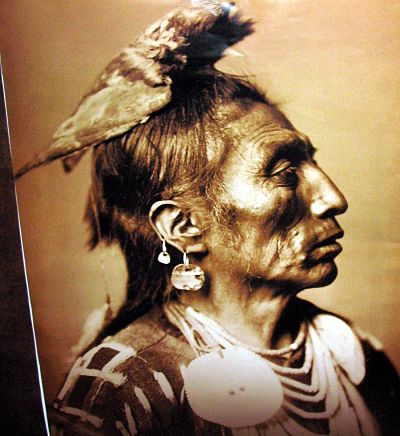
There is nothing worse than when people come to “help.”
By now Christians are aware that much of our missionary “charity” was by missions and not charitable. Less well known is the destruction caused by “science” and the “facts” of anthropology being applied to help. No motivation is so noble that our stupidity and sheer ignorance cannot make our good deeds bad.
The greater our “knowledge,” the greater the harm. We don’t have to look over there for examples, these are mistakes we have made right here.
For those tempted to adopt a view of the United States as God’s chosen land, slavery has always served as a caution. The errors of both religious and secular people related to the “peculiar institution” are so massive that few but the morally reprobate deny them. Instead of denying the evil, apologists for America (a country I love as my homeland!) are tempted to make it our great sin and (almost) our only sin.
The massive abuse of First Nations (Indian peoples) is enough to show the errors of that opinion.
In fact, the actions of the United States of America relative to First Nations are so bad that for most of our history somebody has complained. These complaints were (sometimes) heard “and something was done about it.” Sadly, the something we did was often worse than neglect as we destroyed ancient ways of life (at incalculable cultural cost) in an attempt to “civilize” or we tore children from their parents to put into schools. Perhaps, the worst period of our treatment of American Indians as a nation came when science preached “levels of civilization” and the goody-goods in Congress decided to civilize the “savages.”
A weird combination of a bad application of Darwin’s ideas (progress!) with racism and ethnocentrism justified by science created a perfect recipe for horror. Of course, religious people (Christians especially) did little to fight these ideas, but were co-opted by these wicked concepts. We had done enough harm all by ourselves, but we were co-opted by secularism in the service of the state and we did even worse.
Here is the point: the mess, the evil, the corruption of our values that the United States created in “dealing” with the First Nation “problem” is endless. We need national repentance. The worst problems came when government decided to help and spent decades “helping” by destroying the work of centuries of cultured men and women created in the image of God.
You cannot save a people by imposing solutions on them.
If my (very early readings) teach me anything about such “problems,” it is:
We must admit that there is a problem. We cannot ignore the First Nations that continue to exist as citizens and nations on this continent. Don’t send our child to a school that whitewashes (literally!) American history, but also avoid one that glorifies our present “wisdom” and only demonizes the past.
We are not here “to help.” Best to listen. Every scheme about which I read came from government or “charities” to people. Power and decision making was not with First Nations.
There is enough blame to go around. The point is not the blame, but how meaningful restitution can be made. This is not an answer that can come from government, from outside charities, but can only be suggested by listening to the victims of centuries of horrible government programs.
Never forget that some of the worst destruction of culture and family structures came from those who were self-styled “Friends of the Indians” and “Victorian saints.”
Whenever we look hard at the past, we see great good and great evil. There is a temptation to gloss over the evil or to dwell on it. We can feel holy because we are not secular social Darwinists. Of course, we are (almost surely) doing things in the name of science, experimenting with social structures imposed on small powerless groups, in ways that will horrify readers one hundred years from now.
We learn from the past when we learn how little we can do, how much we must listen, and how easily the power of the state to “do good” and remake culture can do more harm than it does good.
——————————
My thinking began with a reading of A Final Promise by Frederick Hoxie. I am thankful for the guidance of historian Lindsay Marshall as I learn about First Nations. Bad ideas are mine and not hers!











